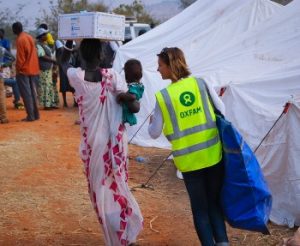Our world is fast becoming a materialistic world. Capitalists take advantage of retail therapy to make lots of profits. These businesses build a need for people to acquire more stuff so they end up buying things they don’t actually need but actually looked pretty cool in the mall. And kids grow up in this capitalist culture full of me, me and me. We all become too engrossed with our needs that we forget to think of others.
 As adults, we need to teach the importance of giving and sharing our blessings with the less fortunate. A child that knows how to give understands that not everyone enjoys the same lifestyle as them and that others have to struggle to earn money for basic needs like food, clothing and shelter, something that others take for granted. When kids know how to share, they realize that they have the power of uplifting the lives of others and making a difference in this world.
As adults, we need to teach the importance of giving and sharing our blessings with the less fortunate. A child that knows how to give understands that not everyone enjoys the same lifestyle as them and that others have to struggle to earn money for basic needs like food, clothing and shelter, something that others take for granted. When kids know how to share, they realize that they have the power of uplifting the lives of others and making a difference in this world.
…Many parents want their children to grow up to be philanthropic.
The hard part is knowing when—and how—to start instilling a sense of philanthropy in them.
Experts in the world of philanthropy offer several approaches.
But there is a

